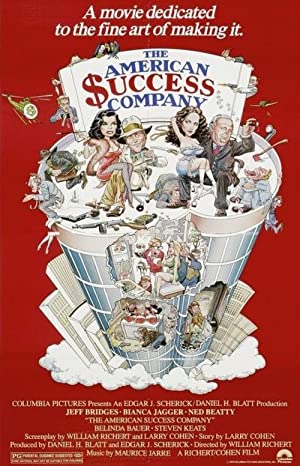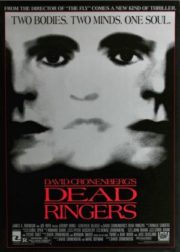
“The American Success Company,” also known as “American Success,” is a drama film released in 1980, directed by William Richert. The film stars Jeff Bridges, Belinda Bauer, and Ned Beatty, and tells the story of a young man’s pursuit of success in the cutthroat world of business.
Plot Summary:
The film follows Harry Flowers (Jeff Bridges), an ambitious and charismatic young man who is determined to achieve the American dream. Harry moves to Los Angeles and takes a job at a prestigious advertising agency, hoping to climb the corporate ladder and achieve financial success.
As Harry immerses himself in the competitive world of business, he faces various challenges and moral dilemmas. He becomes entangled in a love triangle between his boss, Dyan (Belinda Bauer), and a powerful executive, Mr. Elliott (Ned Beatty). As Harry navigates office politics and personal relationships, he begins to question the true meaning of success and the sacrifices he is willing to make to achieve it.
Themes and Impact:
“The American Success Company” explores themes of ambition, disillusionment, and the corrupting influence of power. It offers a critical examination of the pursuit of success in American society and the sacrifices individuals are willing to make to attain it.
The film’s portrayal of the cutthroat world of business and its examination of the compromises individuals must make to get ahead resonate with audiences. It serves as a cautionary tale about the moral and ethical dilemmas one may face when pursuing success at any cost.
“The American Success Company” received mixed reviews upon its release, with some praising Jeff Bridges’ performance and the film’s social commentary, while others criticized its uneven pacing and narrative structure. Despite its mixed critical reception, the film remains an interesting exploration of the dark side of the American dream.
Conclusion:
“The American Success Company” is a thought-provoking drama that delves into the complexities of ambition and the pursuit of success in the American business world. Through its exploration of personal and professional challenges faced by its protagonist, the film offers a critique of societal values and the compromises individuals may make in their quest for success. While not widely remembered or celebrated, the film provides an intriguing examination of the darker side of the American dream.
Submit your review | |
The American Success Company, released in 1980 and directed by William Richert, is a somber and introspective film that delves into the dark underbelly of the American Dream. It presents a bleak portrayal of the pursuit of success and the cost it exacts on individuals.
The film centers around Harry Bailey, a young man who dreams of achieving wealth and success in the cutthroat world of business. He joins The American Success Company, an enigmatic organization promising to unlock his hidden potential and guide him to riches. However, as Harry immerses himself in the company's manipulative tactics and questionable practices, he begins to question the true meaning of success and the toll it takes on his personal life.
The American Success Company is a character-driven drama that explores themes of ambition, identity, and the corrupting influence of power. The film paints a disheartening picture of the ruthless corporate world, where individuals are reduced to mere commodities and moral compromises are the norm. It presents a stark contrast between the illusion of success and the emptiness that lies beneath its surface.
While the film tackles thought-provoking themes, it suffers from a lack of focus and uneven execution. The narrative often feels disjointed, with subplots that fail to fully develop or connect cohesively. The pacing can be sluggish at times, detracting from the overall impact of the story. Additionally, some of the performances come across as wooden and lack the emotional depth required to fully engage the audience.
Despite its shortcomings, The American Success Company does offer moments of insight and introspection. It raises pertinent questions about the nature of success and the sacrifices one must make to achieve it. The cinematography captures the bleakness of the characters' lives, effectively reflecting their inner turmoil and disillusionment.
Ultimately, The American Success Company is a film that attempts to peel back the layers of the American Dream and expose its darker side. While it may not fully realize its ambitious intentions, it offers a cautionary tale about the high price of success and the toll it can take on one's personal life and sense of self. It is a film that will resonate with those who appreciate introspective and thought-provoking dramas, despite its flaws in execution.
























